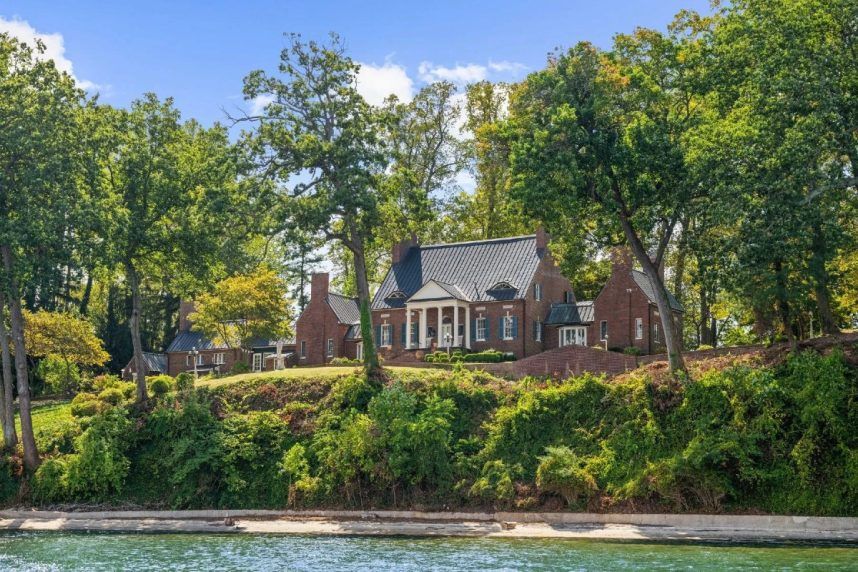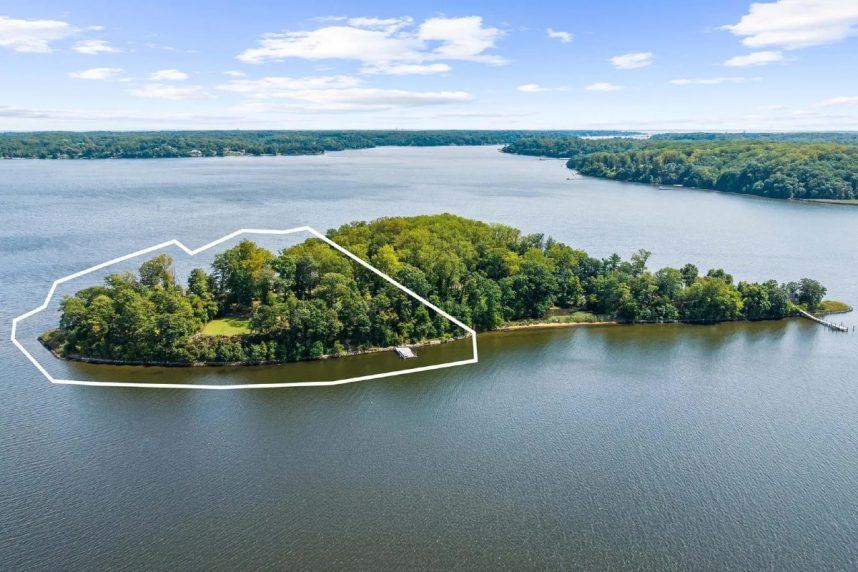Maryland’s St. Helena Island, Which Once Housed an Illegal Casino, Hits the Market
Posted on: October 6, 2025, 12:44h.
Last updated on: October 8, 2025, 09:53h.
CORRECTION: An earlier version of this report stated that the island cannot be used for commercial business. The legality of a commercial endeavor on the island is unclear.
- A historic, private island in Maryland is for sale
- The property comes with a brick mansion that has a unique story to tell
St. Helena Island on the Severn River in Maryland, between Annapolis and Baltimore, is up for sale. Well, a part of it is.

Brad Kappel at TTR Sotheby’s International Realty in Annapolis is the listing agent for 1002 St. Helena Island in Crownsville, MD. The historic mansion on the island’s northern half includes more than 7,100 square feet of interior space with five bedrooms and 5.5 baths on 6.5 acres.
Listed for just shy of $3 million, the exclusive property, described as a “magnificent private island sanctuary on Saint Helena Island,” has more than 1,600 linear feet of protected deep-water frontage on Round Bay. The main residence has imported Belgian marble and mahogany featuring “extraordinary craftsmanship.”
The property’s history is equally extraordinary. The main mansion was built by prominent Baltimore City attorney Paul Burnett in the late 1920s. It housed the Burnett Hospital for Crippled Children until 1942, a year before Burnett died.
The mansion’s later years were less righteous.
Illegal Casino
Following Burnett’s death, the mansion was sold to Eugene Raney, whose wealth stemmed from owning and operating bowling alleys and a beer distribution network in Maryland. Raney partnered with restaurateur John Emory to establish a swanky island club.
In the late 1940s, the St. Helena proprietors brought a handful of slot machines to the ritzy retreat that was patronized by DC’s elite, including members of Congress, judges, and Maryland lawmakers. The fun ended in 1951 when law enforcement raided St. Helena and seized numerous illegal slot machines. Raney and Emory were later convicted of running an illegal gambling house.
Maryland did not legalize slot machines until 2008 through a statewide referendum. Table games were added through a subsequent ballot vote in 2012.
Raney sold the island in the late 1950s to Maryland Appellate Judge Stedman Prescott Jr. Following Prescott’s death in February 1989, the island was sold to a wedding and event company that would subdivide the island into two properties.
Today, the two properties remain privately owned. The northern half was last sold in 2019 for $2.6 million.

Private Abode
The listing for the St. Helena Island property reports annual property taxes of about $22K. There are no roads on the island, though there are trails and a path that is golf cart accessible.
Along with the home, a former water tower has been converted into an office with 360-degree views. Unlike many other private islands in the Chesapeake, St. Helena is on the grid via underwater tubes that have it connected to Baltimore Gas & Electric (BGE).
Kappel said in his listing that “starting bids” are being accepted through Oct. 21, with the auction set for completion by Oct. 30. All offers must be submitted without a financing contingency, and a Proof of Funds is required to schedule a showing.
No comments yet